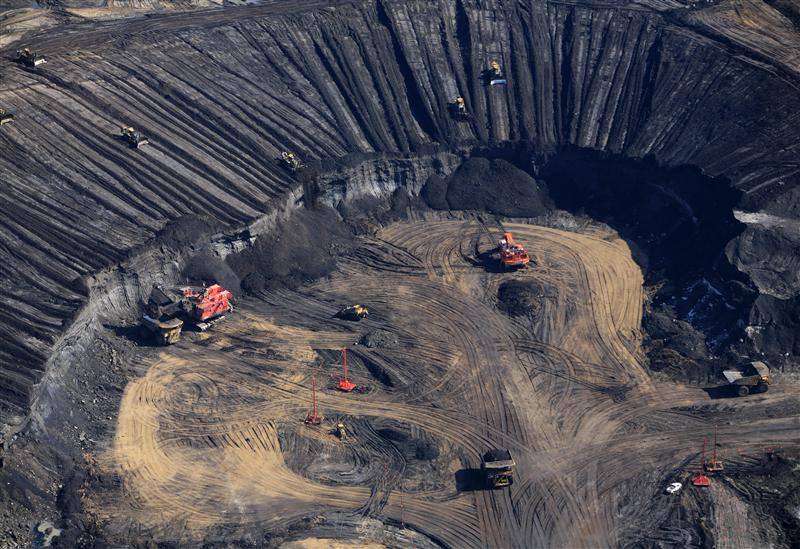
Europe Buckles to Canadian Bullying on Climate
A proposal to label the dirty tar sands as more polluting than conventional oil has been spectacularly abandoned by the European Commission after a four year lobbying campaign by the Canadians.
 A proposal to label the dirty tar sands as more polluting than conventional oil has been spectacularly abandoned by the European Commission after a four year lobbying campaign by the Canadians.
A proposal to label the dirty tar sands as more polluting than conventional oil has been spectacularly abandoned by the European Commission after a four year lobbying campaign by the Canadians.
In the end, the Commission buckled, its brittle backbone broken by four relentless years of Canadian lobbying, arm twisting, blatant bullying and threats.
Instead of the Commission standing proudly on a pedestal of landmark climate legislation, its promise to be a leader for the climate now lies in tatters.
As so often in the past, the oil industry and its political pals has won. The climate has lost.
The commission’s new watered-down proposal for the legilsation concerned – the Fuel Quality Directive – will only now require refiners to report an average emissions value of their feedstock, and will no longer single out the tar sands.
Canadian politicians are gloating, as the dramatic capitulation by the EU paves the way for exports of the dirty tar sands to Europe.
“This is very positive news for Alberta and for the country,” Alberta premier Jim Prentice said yesterday. “The Alberta government as well as the national government has worked hard on this and I know our government has met with officials from almost all the EU member states and has emphasized Alberta’s history of responsibly developing its resources.”
For many people who know the tar sands, the concept of developing them responsibly is a complete misnomer. The decision can only be seen as a dark day for Europe.
For years I and many others have documented the unprecedented lobbying campaign by the Canadians, their oil industry allies, and sympathetic nations like the UK to undermine the legislation concerned, called the Fuel Quality Directive.
Working with Friends of the Earth Europe I wrote two reports on the subject. The first report, entitled Dirty Lobby Dairy, revealed that there had been over 110 lobby events organised by the Canadians on the tar sands and FQD between September 2009 and early 2011. This is over one per week.
The intense lobbying has continued ever since, with Canada increasingly using trade arguments against the EU, including a threat to take Europe to the WTO. “The pressure from Canada was immense,” said one commission official.
Canada also courted powerful allies within the EU like the UK. “It is no secret that our initial proposal could not go through due to resistance faced in some member states,” adds the out-going EU Climate Commissioner Connie Hedegaard, who had championed the original proposals.
Although Canada currently only exports tiny amounts of the tar sands, this is set to increase rapidly, especially given European tensions with Russia. Indeed, ironically the second shipment of 700,000 barrels of the tar sands only arrived in Sardinia yesterday.
It is predicted that without any controls, the imports of tar sands from Canada could rocket to 700,000 barrels per day by 2020, equivalent to six million extra cars on the road.
The British Green MP Caroline Lucas is one of those outraged by the decision. “The proposal is scandalous – it completely defies reason, enormous public opposition and paves the way for big business to profit from gross exploitation of the earth’s resources. Tar sand oil is one of the dirtiest, most polluting fuels.”
The Commission’s new proposals will now be debated by EU member states over the next couple of months before the European Parliament vote on the issue. But for Canada, the hard work to sell their dirty fuel is over. The rest should be a formality.
